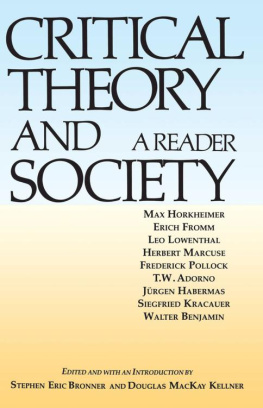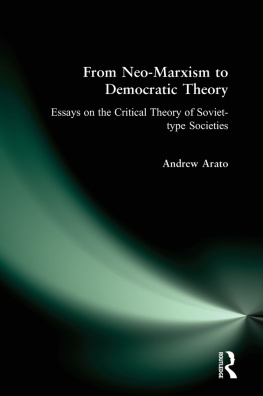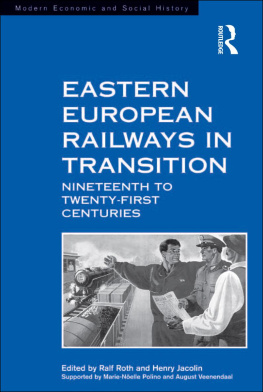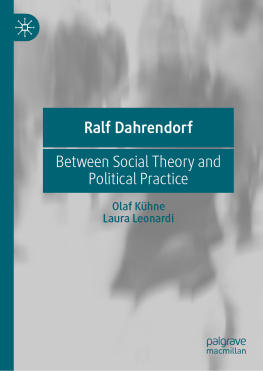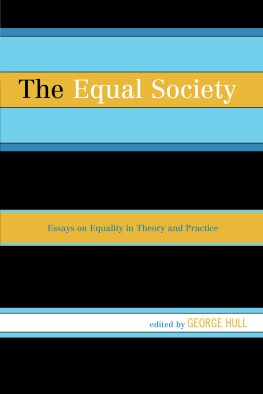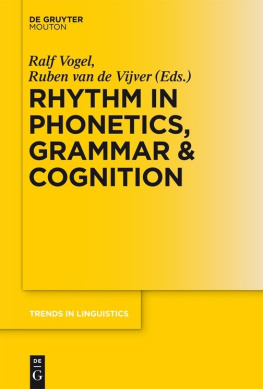First published in Great Britain in 1968
This edition first published in 2022
by Routledge
2 Park Square, Milton Park, Abingdon, Oxon OX14 4RN
and by Routledge
605 Third Avenue, New York, NY 10158
Routledge is an imprint of the Taylor & Francis Group, an informa business
1968 by the Board of Trustees of the Leland Stanford Junior University
All rights reserved. No part of this book may be reprinted or reproduced or utilised in any form or by any electronic, mechanical, or other means, now known or hereafter invented, including photocopying and recording, or in any information storage or retrieval system, without permission in writing from the publishers.
Trademark notice: Product or corporate names may be trademarks or registered trademarks, and are used only for identification and explanation without intent to infringe.
British Library Cataloguing in Publication Data
A catalogue record for this book is available from the British Library
ISBN: 978-1-03-219648-0 (Set)
ISBN: 978-1-00-326063-9 (Set) (ebk)
ISBN: 978-1-03-219668-8 (Volume 2) (hbk)
ISBN: 978-1-03-219673-2 (Volume 2) (pbk)
ISBN: 978-1-00-326027-1 (Volume 2) (ebk)
DOI: 10.4324/9781003260271
Publishers Note
The publisher has gone to great lengths to ensure the quality of this reprint but points out that some imperfections in the original copies may be apparent.
Disclaimer
The publisher has made every effort to trace copyright holders and would welcome correspondence from those they have been unable to trace.
Chapters 1-3 and 6-10 were originally published in German. Chapter 5 is published here for the first time in any language. Chapter 4, copyright 1958 by Rail Dahrendorf, first appeared in the American Journal of Sociology. A substantial portion of Chapter 6 was first published in English under the title On the Origin of Social Inequality in Philosophy, Politics and Society, Second Series, 1962 by Basil Black-well; the essay has been extensively revised and expanded for this volume. All the essays originally written in German have been translated by the author. For details of the essays printing history, see pp. 281-91.
First published in Great Britain in 1968
by Routledge & Kegan Paul Ltd.
Broadway House, 68-74 Carter Lane
London, E.C. 4
S.B.N. 7100 6079 3
1968 by the Board of Trustees of the
Leland Stanford Junior University
Printed in the United States of America
No part of this book may be reproduced in any form without permission from the publisher, except for the quotation of brief passages in criticism.
Preface
The story behind the publication of this volume began when English and American friends suggested publishing a translation of my essay Homo Sociologicus. My publisher, having asked some expert readers to comment on the piece, had his doubts; at least one of the readers found the essay neither particularly original nor particularly stimulating. Possibly he was right, possibly wrong; what is of interest is that American and European sociologists, at least until very recently, have had strikingly different ideas of what is stimulating. In Germany, Homo Sociologicus has gone through six editions and has given rise to more than a dozen critical studies, the most recent of which describes it as probably the most influential contribution to sociological theory that has appeared in Germany since the war, and the only one that has led to a full-fledged public controversy. (5: 5.) My publications on class and the theory of conflict have had exactly the opposite fate. Although they were not exactly ignored in Germany, they failed to stimulate discussion, whereas their critical reception both in Britain and in the United States has been very gratifying.
Instead of trying to explain this difference, let me continue the story. My publisher, Mr. Leon E. Seltzer of Stanford University Press (to whom I am greatly indebted for more reasons than the eventual publication of this volume), could not very well discount the judgment of his experts; on the other hand, he did not want to abandon the idea of publishing an English version of Homo Sociologicus. So he suggested adding a few other pieces written in more or less the same vein and making up a volume of papers under the title of Essays in the Theory of Society. This is the volume.
Now one might of course ask what is the same vein, and why should a whole volume written in this vein be more acceptable than Homo Sociologicus? The answer to the question, if there is one, is that these essays as a whole tend to exemplify a view of society that both American and European sociologists may find of interest. In the United States, a certain dissatisfaction with technical or professional sociology has led many sociologists to take a broader view of their discipline, and in particular to devote more time to what I call para-theoretical interests. The new sociology in America, if it is anything at all, is above all a reminder not only of the moral, political, and philosophical implications of technical sociology, but of the potential benefits to theory itself, in the most rigorous sense, of reflection about the nature and course of human society. In Germany, and more generally in Europe, much of the excitement still felt about sociology comes precisely from such para-theoretical reflections. The great debates of European sociology lead to argument rather than empirical testing; they do not exclude the philosopher, or indeed the intelligent outsider, from participation.
Such debates involve, in Ren Knigs terms, the theory of society rather than sociological theory: Whereas sociological theory has to do with detailed problems clearly delimited from each other, with findings that build onto existing knowledge or reject it as the case may be, the theory of society is concerned with the interpretation of the totality of social being. (3: 10.) Robert K. Merton has tried to render the methodological concept intended here more precise. Much of what is described in textbooks as sociological theory, he writes, consists of general orientations toward substantive materials, orientations that provide only the broadest framework for empirical inquiry but are indispensable to the process of arriving at determinate hypotheses (4: 87-88). In other words, though theories of society may be relatively vague and incapable of empirical test, they help us to discover the variables that enter into general explanatory statements capable of empirical testing. Theories of society are useful as pointers to sociological theories.
Irving Louis Horowitz has similar ideas. The forging of a valuable sociology, he writes, depends in part on the creation of a social science of values. What is required today is a new effort to forge a sociology of the big range. The fourth dimension, history, is missing from our work. (94: 11, 19, 25.) One may doubt whether the concept of a social science of values makes methodological sense, and whether the notion of small, middle, and big ranges is very illuminating; but the editor of The New Sociology certainly has a point in demanding a new look at value-free sociology, a greater readiness to analyze inclusive social units, and an attempt to weave historical awareness into sociological generalizations.
Possibly the most sophisticated attempt so far to clarify the task of sociology thus understood is that of Jrgen Habermas in his definition of critical sociology:
If, therefore, sociology can be ascribed any task beyond the pragmatic tasks of an empirical-analytical science of planning, it is this: instead of explaining what is



